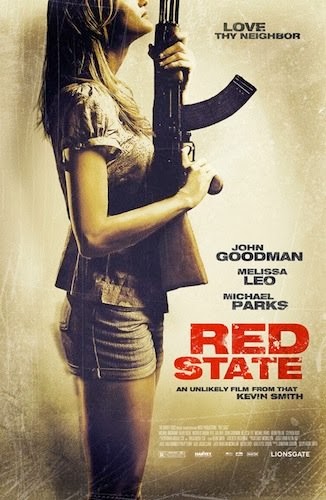 Fascinating characters are the heart and soul of Red State. Smith seamlessly shifts the focus between central cast members without disrupting the plot. Minimal effort is required to reveal the rich inner lives of the characters (which is to be expected, given his prior work), even though there are “few redeeming characters” (filmmaker’s words).
Fascinating characters are the heart and soul of Red State. Smith seamlessly shifts the focus between central cast members without disrupting the plot. Minimal effort is required to reveal the rich inner lives of the characters (which is to be expected, given his prior work), even though there are “few redeeming characters” (filmmaker’s words).Smith’s use of unknown actors lends gravity to the authenticity of the film, but this decision is a double-edged sword, making the introduction of famous actor John Goodman halfway through the film jarringly intrusive. Had his character been introduced at the 17 or 30 minute mark (or even as the protagonist) this could have been averted.
While Goodman’s performance proved to be one of the least interesting in the whole film, actor Michael Parks portrays his character with absolute brilliance. His performance is perfectly and fully realized, charismatic, and utterly entrancing, the true gem of the film.
While the director demonstrates his usual strength as a character-oriented storyteller he also describes his grave lack of ability in plot development. The story is handled clumsily, going out of its way to draw Waco parallels at the expense of an organic plot. In a failed attempt at richness, Smith fails to juggle multiple storylines, each being underdeveloped and poorly communicated, the confused cluster finally crashing into a smoking heap by the end. Other problems stem from this failure, such as numerous payoffs with no accompanying setups (including a key piece in the plot’s final moments), frivolous character deaths, and far too little much “telling” through monologues instead of “showing.”
In the end, this reviewer felt that the film should have been about the cult, not the outside interlopers. More material was to be gained by doing so and would provide the audience greater understanding of each faction in the film. As it is, even the title "Red State"is an ungainly play at immature political commentary.
Rating: 2 / 5
